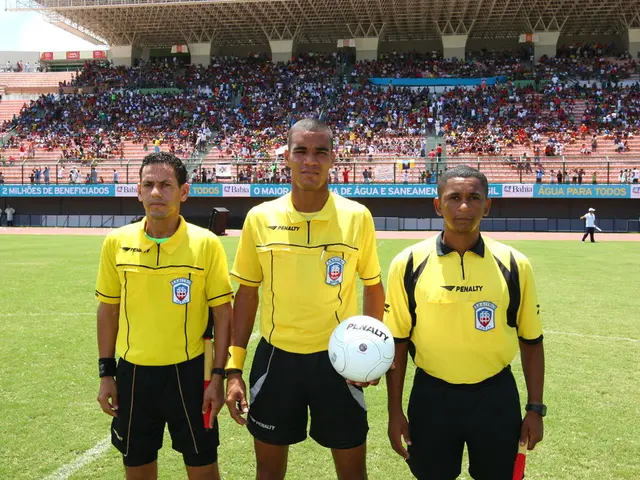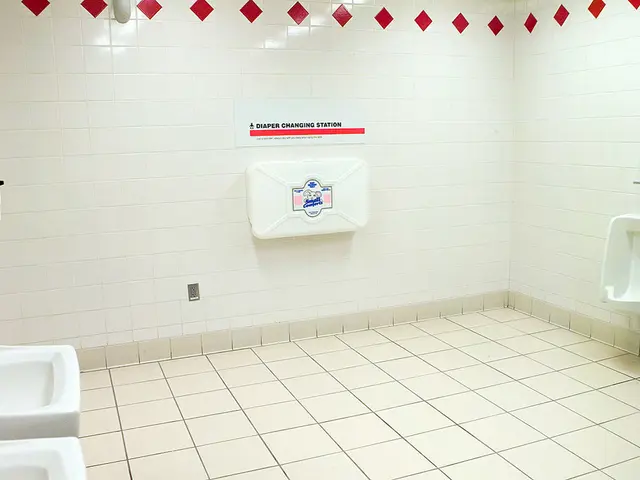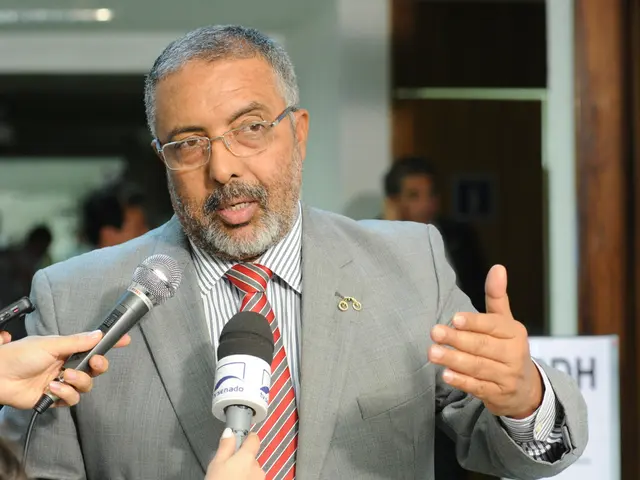Greece initiates relocation of refugees to secluded facilities
Free and Frank: Greece's New Approach to Refugee Management
Greece is shaking things up when it comes to managing refugees, with a focus on closed camps and increased cooperation with Turkey. Here's the lowdown on the recent developments and the buzz surrounding these changes.
In a move fueled by escalating tensions and local exasperation, Greece announced plans to start deporting 200 refugees weekly, beginning in March. The plan includes establishing closed-type refugee camps on several Aegean islands, capable of accommodating up to 20,000 refugees in total. These camps will be subject to regulated and limited entry and exit, with refugees prohibited from leaving during night hours.
Greece serves as a crucial transit point for thousands of refugees aiming to reach the EU from Turkey. With the arrival numbers comparable to the peak of the Syrian war in 2016, Athens is experiencing a renewed wave of refugees. In 2019 alone, over 74,000 refugees entered Greece, and nearly 11,000 of them moved in September. Today, Greece is home to almost 90,000 refugees, more than the combined total in Italy, Spain, Malta, and Cyprus.
Critics have long criticized Greece's handling of refugee shelters, particularly on the Aegean islands, which have housed refugees up to six times their capacity, with as many as 300 people sharing a single toilet. Medical organizations, such as Doctors Without Borders (MSF), have denounced these camps as the worst humanitarian sites in the world, while Amnesty International has deemed Greece's plans as alarming and raising serious safety concerns.
The Greek government's controversial designs extend beyond simply constructing new camps. In 2025, they controversially redesignated Turkey as a "safe third country" for asylum seekers from Afghanistan, Bangladesh, Pakistan, Somalia, and Syria. This policy aims to reject applications and facilitate returns, a move that has drawn condemnation from legal groups for circumventing court rulings and EU law.
Additionally, the suspension of cash assistance for asylum seekers since mid-2024 has worsened the refugees' living conditions, leading to incidents of child malnutrition in camps like Samos. Legal challenges are underway to overturn this policy and reinstate compliance with EU asylum standards. Critics, along with organizations like the Greek Council for Refugees and Refugee Support Aegean, call for immediate transfers to the mainland and the reinstatement of financial aid. They argue that closed camps isolate refugees, delay their integration, and violate their rights.
These developments in Greece and its relationship with Turkey reveal a complex picture of evolving refugee management policies, ongoing humanitarian concerns, and the persistence of systemic barriers to humanitarian access. As the situation continues to unfold, it remains crucial to stay informed and maintain a balanced perspective on these critical global issues.
- Greece's new refugee management approach includes plans to deport 200 refugees weekly, starting in March, and establishing closed camps on Aegean islands.
- The camps, capable of housing up to 20,000 refugees, will have regulated entry and exit, and refugees will not be allowed to leave during night hours.
- Thousands of refugees aim to reach the EU through Greece, which serves as a crucial transit point from Turkey, leading to increased arrival numbers comparable to the peak of the Syrian war in 2016.
- Greece is home to almost 90,000 refugees, more than the combined total in Italy, Spain, Malta, and Cyprus, and has been a point of criticism for housing refugees up to six times their capacity.
- Medical organizations and human rights groups, such as Doctors Without Borders (MSF) and Amnesty International, have denounced the camps as the worst humanitarian sites in the world, and expressed alarm over Greece's plans.
- The Greek government's controversial designs include redesignating Turkey as a "safe third country" for asylum seekers from certain countries, leading to condemnation for circumventing court rulings and EU law.
- The suspension of cash assistance for asylum seekers since mid-2024 has worsened the refugees' living conditions, leading to incidents of child malnutrition in camps like Samos, with legal challenges ongoing to overturn this policy.
- Critics and organizations like the Greek Council for Refugees and Refugee Support Aegean call for immediate transfers to the mainland and the reinstatement of financial aid, arguing that closed camps isolate refugees, delay their integration, and violate their rights.
- The evolving refugee management policies in Greece and its relationship with Turkey highlight ongoing humanitarian concerns, the persistence of systemic barriers to humanitarian access, and the need to remain informed on these critical global issues in the general-news and crime-and-justice categories.








